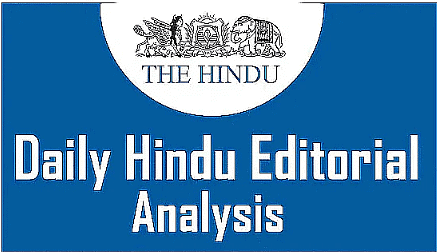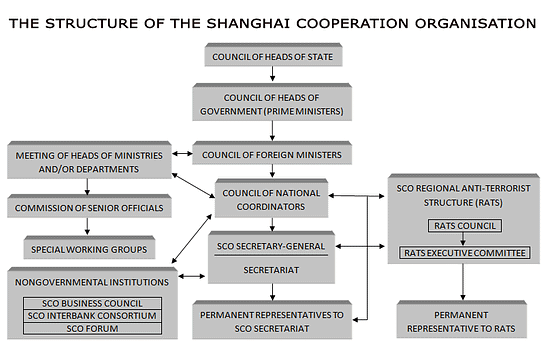UPSC Exam > UPSC Notes > Current Affairs & Hindu Analysis: Daily, Weekly & Monthly > The Hindu Editorial Analysis- 16th March 2023
The Hindu Editorial Analysis- 16th March 2023 | Current Affairs & Hindu Analysis: Daily, Weekly & Monthly - UPSC PDF Download

China, India and the promise of the power of two
Context
The year 2023 marks a high point in India’s diplomacy, with its presidentship of the Shanghai Cooperation Organisation (SCO) and the G-20. The focus is also on China which held “two sessions” recently: the annual sessions of the National People’s Congress of the People’s Republic of China and the National Committee of the Chinese People’s Political Consultative Conference. Here are some insights into China’s development.
What is Shanghai Cooperation Organization (SCO)?
- About:
- SCO is a permanent intergovernmental international organization.
- It’s a Eurasian political, economic and military organization aiming to maintain peace, security and stability in the region.
- It was created in 2001
- The SCO Charter was signed in 2002, and entered into force in 2003.
- Genesis:
- Prior to the creation of SCO in 2001, Kazakhstan, China, Kyrgyzstan, Russia and Tajikistan were members of the Shanghai Five.
- Shanghai Five (1996) emerged from a series of border demarcation and demilitarization talks which the four former Soviet republics held with China to ensure stability along the borders.
- Following the accession of Uzbekistan to the organization in 2001, the Shanghai Five was renamed the SCO.
- India and Pakistan became members in 2017.
- On 17th September, 2021, it was announced that Iran would become a full member of the SCO.
- Objectives:
- Strengthening mutual trust and neighborliness among the member states.
- Promoting effective cooperation in -politics, trade & economy, research & technology and culture.
- Enhancing ties in education, energy, transport, tourism, environmental protection, etc.
- Maintain and ensure peace, security and stability in the region.
- Establishment of a democratic, fair and rational new international political & economic order.
- Membership:
- Kazakhstan, China, Kyrgyzstan, Russia, Tajikistan, Uzbekistan, India, Pakistan and Iran.
- Structure:
- Heads of State Council – The supreme SCO body which decides its internal functioning and its interaction with other States & international organisations, and considers international issues.
- Heads of Government Council – Approves the budget, considers and decides upon issues related to economic spheres of interaction within SCO.
- Council of Ministers of Foreign Affairs – Considers issues related to day-to-day activities.
- Regional Anti-Terrorist Structure (RATS) – Established to combat terrorism, separatism and extremism.

- SCO Secretariat – Based in Beijing to provide informational, analytical & organizational support.
- Official language:
- The official working language of the SCO Secretariat is Russian and Chinese.
The Central Asian region is richly endowed with vital minerals and natural resources. India also has a major interest in security, trade, geopolitical and energy cooperation.
- SCO membership has also helped India to be a major pain-Asian player, which was recently boxed in the South Asian Region.
- It is important for India’s stated policy of pursuing “multi-alignments”.
- From the Indian perspective, SCO is extremely important as the security, strategic, economic and geopolitical interests are closely intertwined with developments in this area.
- The challenges of terrorism, radicalism, and instability pose a grave threat to Indian sovereignty and integrity.
- A stable Afghanistan to is in India’s interest, and RATS provides access to non-Pakistan-centred counter-terrorism information.
- With the landlocked states of Central Asia, accessing these resources becomes difficult. In this regard, India has prioritized the construction of International North-South Transport. Joining SCO will help India to connect Central Asia with South Asia.
- Central Asia is part of India’s extended neighbourhood. India’s relations with countries in the region have enormous potential for enhancing ties in areas such as economy, security, policy, investment, trade, connectivity, energy, and capacity development.
- After India’s membership in the SCO, it has provided an opportunity for the leadership of India, including prime ministers, to meet with their counterparts from Central Asia, Russia, China, Afghanistan, and others regularly and frequently.
- India has demonstrated its keen interest in strengthening multi-faceted relations with Central Asia through the Prime Minister’s historic visit to the five Central Asian Republics in July 2015. Several agreements were signed, and new initiatives were launched.
- The TAPI gas pipeline is an example of a mutually beneficial project.
- In the future, India’s development experience, particularly in promoting agriculture, small and medium enterprises, pharmaceuticals, and information technology, can be of immense benefit to Central Asian countries.
The Shanghai Cooperation Organisation(SCO) has the following aims and objectives:
- SCO aims to strengthen the relations between member states by deepening political, security and economic cooperation.
- To strive for joint cooperation between the members to confront threats emanating from terrorism, extremism and separatism.
- SCO also aims to move towards developing a democratic and equitable international political order.
- To ensure joint efforts in maintaining peace, security and stability in the region.
- To deepen engagements in the field of trade/commerce, transport, tourism, environment, cultural linkages, education, research and technology.
It is the core value of SCO. As the undergirding values and guidelines for the SCO, it features mutual trust, mutual benefit, equality, consultation, respect for cultural diversity, and the pursuit of common development.
Challenges to SCO
The SCO mechanism provides an important guarantee for its multilateral cooperation ahead. Though, the challenges lie ahead, which are:
- The intensification of the great power game in the region. It includes combating terrorism, extremism, and separatism, drug and weapons trafficking, illegal immigration, etc.
- The weakness of the sense of community between its member states
- The transformation of the cooperation pattern faces after expansion. Despite being geographically close, the rich diversity in members’ history, backgrounds, language, national interests, a form of government, wealth, and culture make the SCO decision-making challenging.
The document The Hindu Editorial Analysis- 16th March 2023 | Current Affairs & Hindu Analysis: Daily, Weekly & Monthly - UPSC is a part of the UPSC Course Current Affairs & Hindu Analysis: Daily, Weekly & Monthly.
All you need of UPSC at this link: UPSC
|
38 videos|5293 docs|1118 tests
|
FAQs on The Hindu Editorial Analysis- 16th March 2023 - Current Affairs & Hindu Analysis: Daily, Weekly & Monthly - UPSC
| 1. What is the significance of China and India in terms of global power? |  |
Ans. China and India are two of the world's most populous countries and emerging economies. They hold significant geopolitical influence and are major players in global affairs. Their economic growth, technological advancements, and military capabilities make them promising powers in the international arena.
| 2. What is the "power of two" referred to in the article? |  |
Ans. The "power of two" refers to the potential collaboration and synergy between China and India. By leveraging their strengths and working together, these two countries can enhance their global influence and become even more powerful individually and collectively.
| 3. How do China and India's relations affect the global balance of power? |  |
Ans. China and India's relations have a significant impact on the global balance of power. Their cooperation and collaboration can lead to a shift in power dynamics, as they collectively challenge the dominance of traditional superpowers. Additionally, any conflicts or tensions between the two countries can disrupt regional stability and have global repercussions.
| 4. What are the key factors that contribute to China and India's potential as global powers? |  |
Ans. Several factors contribute to China and India's potential as global powers. These include their large populations, growing economies, technological advancements, military capabilities, and strategic geographic locations. Additionally, their investments in infrastructure, innovation, and human capital play a crucial role in their rise as global players.
| 5. What challenges do China and India face in achieving their potential as global powers? |  |
Ans. China and India face several challenges in achieving their potential as global powers. These include territorial disputes, regional conflicts, economic inequalities, social disparities, environmental concerns, and governance issues. Additionally, their relationships with other major powers and the global geopolitical landscape also present obstacles to their aspirations.
Related Searches
















